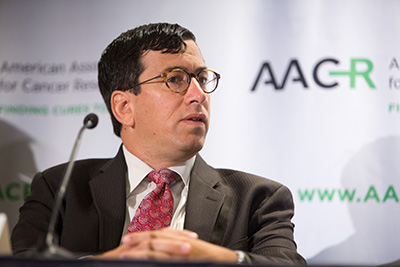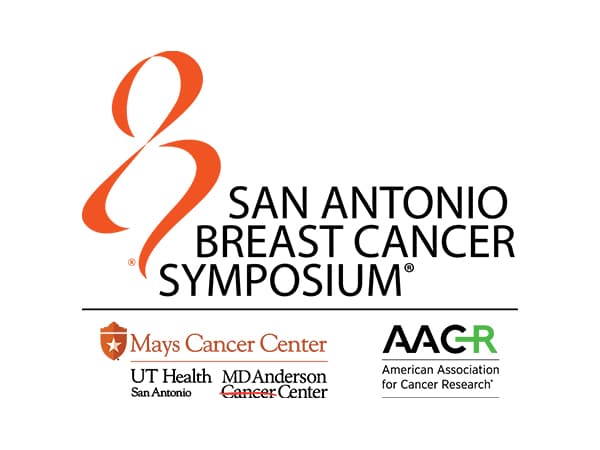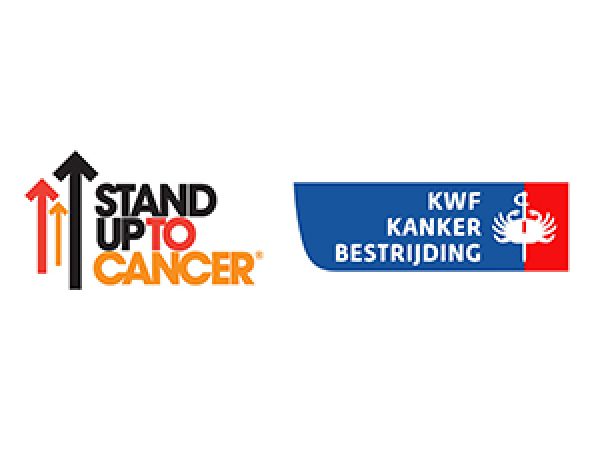New Immunotherapy Advances Presented at the AACR Annual Meeting 2015
Immunotherapeutics called PD-1 inhibitors have garnered a lot of attention in the past year thanks to exciting clinical trial results that led to U.S. Food and Drug Administration (FDA) approvals for their use in the treatment of melanoma and non-small cell lung cancer (NSCLC). Today at the AACR Annual Meeting 2015, researchers presented new data on the PD-1 inhibitor pembrolizumab (Keytruda) that have the potential to lead to further changes in clinical practice.
New advances for melanoma
Results from the KEYNOTE-006 phase III clinical trial comparing two FDA-approved immunotherapeutics as first-line therapy for patients with advanced melanoma showed that pembrolizumab yielded significantly better treatment outcomes than ipilimumab (Yervoy) for all endpoints studied.
“This study is the first clinical trial to compare head-to-head two immune checkpoint inhibitors as front-line therapy for melanoma,” said Antoni Ribas, MD, PhD, professor of hematology and oncology and director of the Tumor Immunology Program Area at UCLA Jonsson Comprehensive Cancer Center.
“We are delighted to declare that the clinical trial met all of its statistical endpoints, and we found that pembrolizumab is superior to ipilimumab as first-line therapy,” continued Ribas, who presented the data at a news conference Sunday morning.
Currently, ipilimumab is the standard of care for the first-line therapy for patients with metastatic melanoma, and pembrolizumab is approved as second-line therapy for patients with metastatic melanoma whose tumors no longer respond to ipilimumab or BRAF inhibitors.
Merck plans to seek regulatory approval of Keytruda as a first-line treatment for metastatic melanoma, according to an article in the Wall Street Journal, which quotes Roger M. Perlmutter, MD, PhD, president of Merck Research Laboratories, as saying that the new study supports Keytruda as “the favored drug” in first-line treatment.
Progress Against Non-small Cell Lung Cancer

Dr. Edward Garon during a press conference at the AACR Annual Meeting 2015 where he presented data from the KEYNOTE-001 trial.
Edward B. Garon, MD, associate professor of medicine at the David Geffen School of Medicine at the University of California, Los Angeles, presented data from another pembrolizumab clinical trial, the phase I KEYNOTE-001 clinical trial.
Garon presented results from the portion of the trial that is testing the safety and efficacy of pembrolizumab as a treatment for NSCLC. “The median duration of response exceeded a year among responders regardless of the degree of PD-L1 expression, which is one of the exciting outcomes with this class of drug,” he said.
Garon explained that the overall response rate for the entire 495 patients was 19 percent but that approximately a quarter of screened patients had PD-L1 expression in at least half of their tumor cells, and that among these patients in the validation cohort, the overall response rate was nearly 50 percent.
Merck announced earlier Sunday that it had submitted these data to the FDA for review. “We are encouraged by the new KEYNOTE-001 data evaluating KEYTRUDA in patients with advanced non-small cell lung cancer, which will be presented today at [the] AACR Annual Meeting,” said Perlmutter. “We look forward to the FDA’s review of our supplemental application for KEYTRUDA, which is based in part on these data.”
Cover photo: Dr. Antoni Ribas presents KEYNOTE-006 trial results to a press conference at the AACR Annual Meeting 2015.



